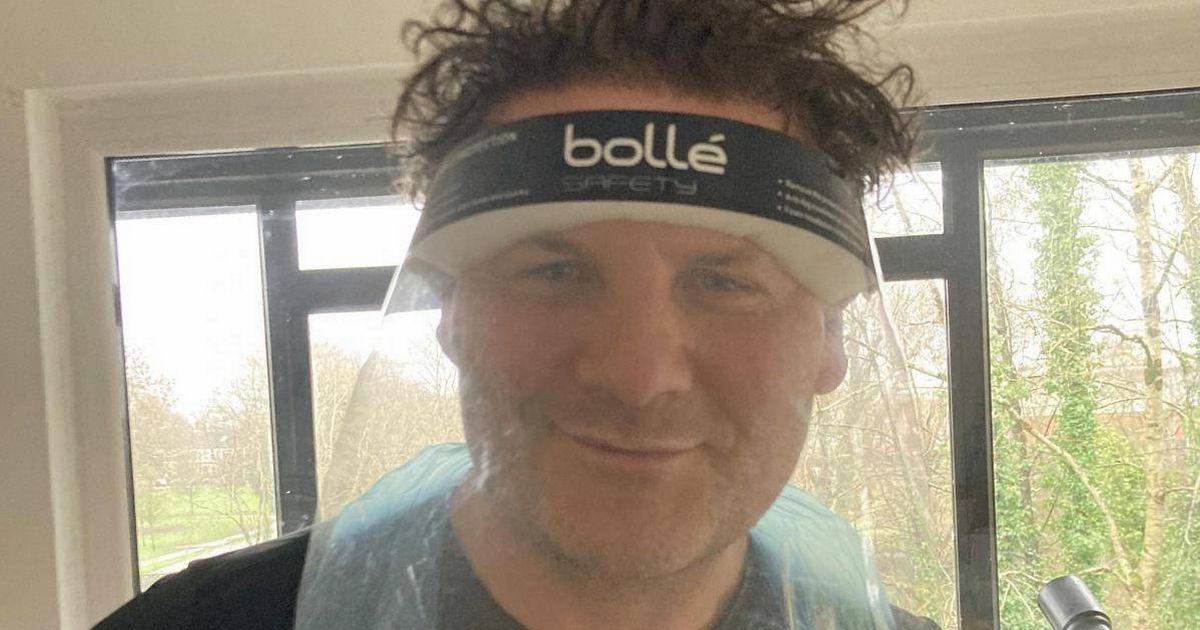In 1999, Peter Rogers was seen by many as the best loosehead prop in the world, having destroyed a succession of scrums during Wales’ 11-match winning run under Graham Henry
12:21, 26 Aug 2025Updated 12:23, 26 Aug 2025
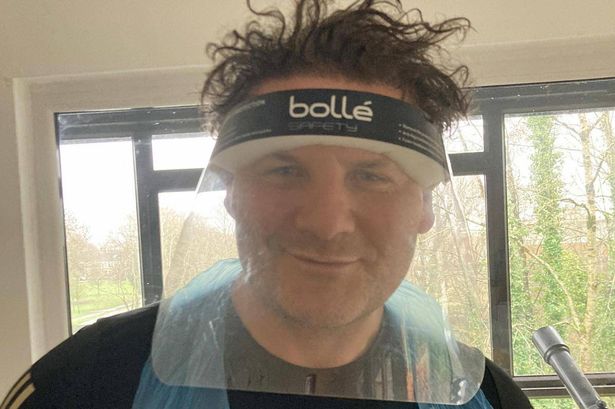
The curious case of Peter Rogers remains one of Welsh rugby’s most intriguing puzzles.
In 1999, he was widely regarded as the world’s top loosehead prop, having decimated numerous scrums during Wales’ impressive 11-match winning streak under Graham Henry. However, as quickly as his star had ascended following his move from South Africa, it plummeted. Within a year, his international career was over as he disappeared from the Test game.
Rogers, who is now 56 and went on to become a care worker in Cardiff, spent the last two decades trying to decipher exactly what went wrong, admitting it’s all the more perplexing considering his standing at the conclusion of the 1999 World Cup.
“I think I was in almost every national newspaper’s Team of the Tournament,” he previously told WalesOnline.
“I have still got all the cuttings now.
“I was in the Sunday Times Dream Team, the Telegraph, all the rugby papers.
“They had the world rankings in this one magazine and I was the No 1 loosehead in the world, with Os du Randt No 2. I was above the Ox!”.
“I was like ‘Oh my God, it doesn’t get better than this’, because he was one of my heroes as a front rower.
“I was on fire that year. There was no-one I feared.”
Yet just a year later, his 18-cap Wales career came to an abrupt end and he transitioned to hooker at club level before hanging up his boots.
“I don’t know what happened,” he confessed.
“I have sat down and thought about it many times. I have searched for answers.”
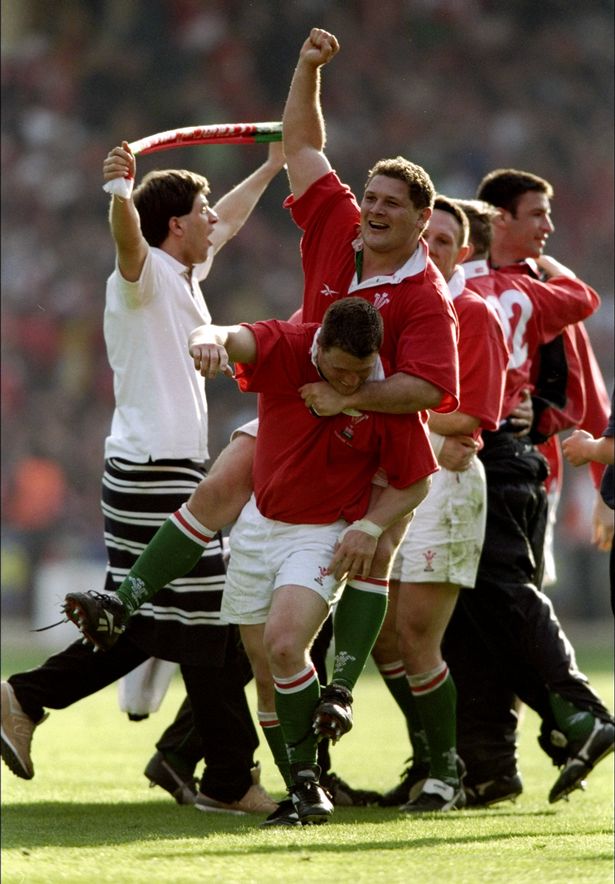 Peter Rogers and Scott Gibbs of Wales celebrate victory over England(Image: Gary M Prior/Allsport)
Peter Rogers and Scott Gibbs of Wales celebrate victory over England(Image: Gary M Prior/Allsport)
Reflecting on his career, the player often found himself revisiting his transfer from London Irish to Newport following the ’99 World Cup.
“I tried to stay at London Irish. I was happy there,” he admitted.
He even contemplated a return to club rugby in South Africa, with the intention of commuting back and forth for Wales games.
“But I got ridiculed for it. They said that’s not going to happen.”
The directive was clear: “I got told I had to come and play in Wales.”
In retrospect, he believes this move marked the end of his career.
“I would definitely say going there was the end of my career. It’s quite sad looking back,” he said.
“I should never have joined Newport. Nothing against the club, it was just the circumstances.”
He replaced fan favourite Rod Snow, which may have caused some tension within the team. “Rod Snow was their favourite and I took his position which could have caused a bit of a rift in the squad.”
The team’s lack of a strong forward pack also posed challenges. “We didn’t have a decent pack of forwards that could scrummage competitively either.
“We were picking blindside flankers in the second row.”
His fellow players weren’t all full-time professionals. “I had a couple of locks behind me who were semi professionals, not even full-time pros.”
Being known as a scrummager, he faced opponents eager to take him down, backed by their entire teams. “Having a bit of a reputation as a scrummager, I would go up against people who would try and bring me down, with a whole pack behind them.
“I had a lot of people gunning for me.
“I lived on being a scrummager and it was affecting my reputation.
“Maybe I was a bit tired mentally and I lost a lot of weight as well. I probably overtrained. I went down to about 17st from 19st plus.
“I wasn’t dominating like I was at international level and when the downhill spiral comes it goes quick.
“It got to me I guess. My confidence did go down. It was a combination of a lot of things.
“My age was against me as well because I was 30 when I won my first cap.
“But the main thing was joining Newport. It was a mistake.
“I should have joined a different club, a club which focused more on scrummaging.”
That was precisely what Rogers had grown accustomed to during his stint in South Africa, having ventured there during his early twenties.
Born in Maidstone, he relocated to Bryncethin, close to Bridgend, as a young child alongside his father Philip – a Welsh-speaking prop hailing from Trimsaran who had attended Sunday School with Jonathan Davies’ mother.
Rogers discovered rugby whilst at Llandovery College, initially playing hooker – the position he occupied for Maesteg, Bridgend and predominantly Glamorgan Wanderers whilst pursuing accountancy and finance studies at the University of Glamorgan in Treforest.
During the final stages of his university years in the early 1990s, he forged a pivotal relationship.
“There were some South African exchange students that I became friends with and I just went over there for a holiday,” he explains.
“I ended up staying for nine years.
“I was only going to be there for the summer, but I joined the Pirates club in Johannesburg. They asked me to stay on and we were getting paid!”.
It was at the Pirates where he made his crucial positional change.
“They had a well-established hooker in the first team, so they threw me in at prop and it went pretty well,” he says.
“I was about 16st when I went over and I ballooned up to about 19st within a year.
“When I went home to Wales, people who remembered me from when I played as a youngster would say ‘Oh, how did you get so big out in South Africa, let me think!'”.
“But categorically I can say there was nothing untoward.
“I naturally ballooned with over-eating.
“Honest to God, I was eating steak for breakfast everyday.
“I had never seen steak in Wales really and there I was eating it every morning with eggs.
“I got into weight training as well. That was huge out there.
“I noticed the extra weight was helping me. I could scrummage. South Africa is the home of scrummaging and I learned so much out there.
“We would have 90 minute live scrummaging sessions, from one corner of the pitch to the other.”
Then, in 1998, a pivotal moment arrived.
“I had done quite well in the Vodacom Series and I was building up a reputation as a destructive scrummager,” he shared.
“All of a sudden, an agent rang me unexpectedly and said Graham Henry was going to be coaching Wales and he’d identified me as a player of interest.
“I think he had seen me play when he came across with Auckland for a game against Transvaal.
“It sounds like he had called every single agent and said he wanted whoever is Welsh playing anywhere in the world to come and bolster the Wales squad.
“Anyway, the agent said he’d help me find a club and I ended up at London Irish.”
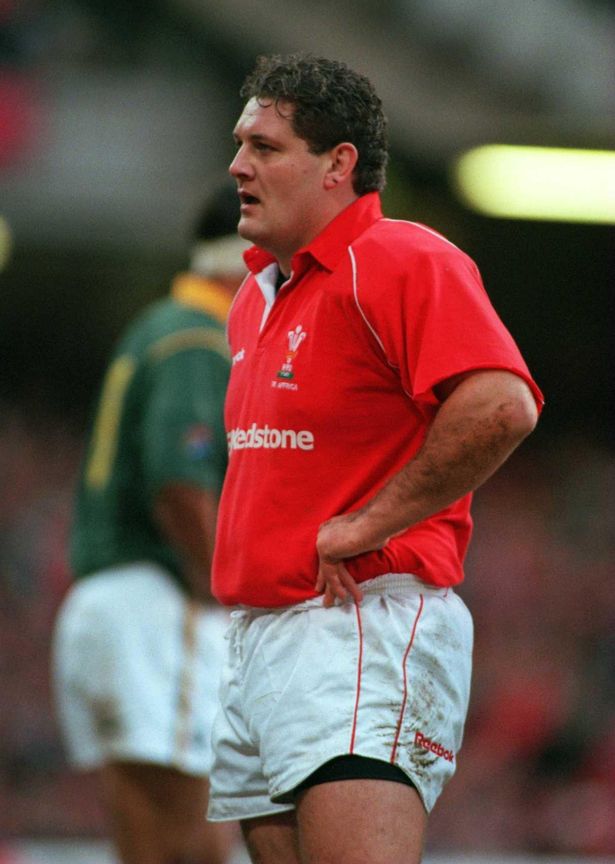 Peter Rogers, Wales
Peter Rogers, Wales
However, this sparked a bit of an international tug of war between Wales and England for his services.
“Graham had come to watch my first two games for Irish. He was in the crowd,” Rogers revealed.
“But then our coach, Dick Best, told me Clive Woodward was interested.
“England were a decent team and Wales were terrible.
“So I kind of had second thoughts when Dick said about Woodward being interested.
“There was a chance of it happening, because I was born in Kent and my mother was English.
“But then my dad said to me ‘You can’t play for England, you just can’t’.
“I was injured at the time and the message from Woodward was they would get back to me when I was fit.
“Wales said ‘We will sign you now’ and I went with them.
“Look, I have got no regrets whatsoever. I don’t think I could have put that white jersey on, to be honest.
“It was bad enough going back to visit my mates in Bryncethin with the South African accent I had acquired!”.
Rogers initially donned the iconic red shirt for Wales A against Scotland and Ireland during the opening two weekends of the 1999 Five Nations.
Forming the front row alongside Garin Jenkins and Ben Evans, matters progressed smoothly for both him and the squad, whilst the senior team suffered defeats in their opening two matches.
“I remember Wales A had a full-on scrummaging session against the Wales first team down in Sophia Gardens,” he said.
“And, oh my God, we pulverised them. It was embarrassing.
“We marched them back about ten yards at one stage.
“Then we all went up together for the France game, me, Garin and Ben.”
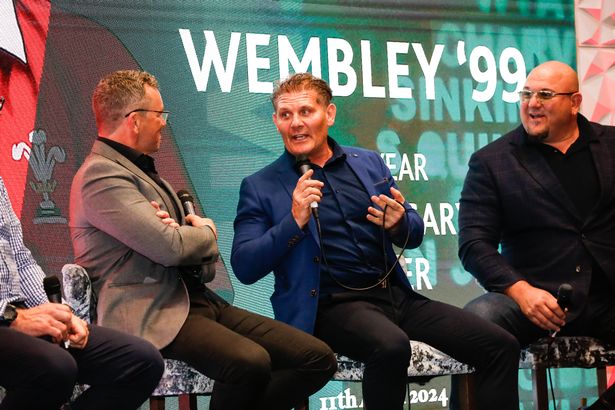 Peter Rogers, the former prop who now works as a carer in south Wales, is still looking in great shape(Image: Paul Fears Photography/ The Events Room)
Peter Rogers, the former prop who now works as a carer in south Wales, is still looking in great shape(Image: Paul Fears Photography/ The Events Room)
It proved to be an unforgettable Test debut for Rogers in Paris, as Wales secured a thrilling 34-33 victory to kick-start their remarkable 11-match winning streak.
He was also part of iconic wins against England at Wembley and South Africa, alongside a series victory in Argentina.
Wales were unstoppable, particularly when it came to the set piece.
“We demolished everyone,” said Rogers.
“Garin (Jenkins) and I used to talk about scrummaging a lot. We lived and breathed it and we used to smash people.
“I was so passionate about scrummaging. I still am today.
“I would do analysis and get as much footage of tightheads as I could.
“But it wasn’t just the front row. In Chris Wyatt and Craig Quinnell, we had two second rows that were hungry to scrum. It was all of us.”
Following their successful streak, Wales entered the World Cup on home turf riding high, but were knocked out by eventual winners Australia. It was a tournament Rogers believes Wales could have won.
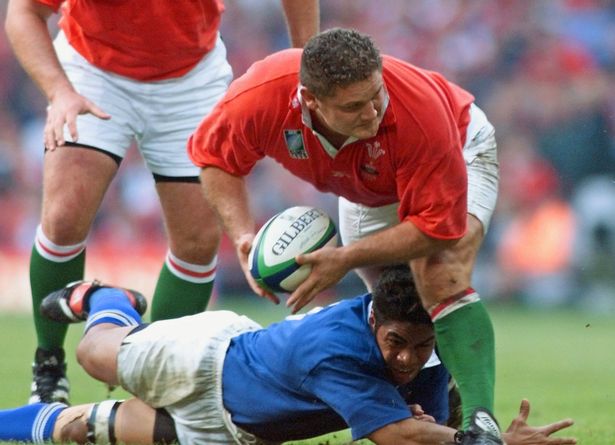 Peter Rogers in action at the 1999 World Cup
Peter Rogers in action at the 1999 World Cup
However, it was not meant to be, with the squad subsequently entering a period of decline in 2000 that mirrored Rogers’ own diminishing form. After less than a year at Newport, he moved to Cardiff, where he played in 58 matches over three seasons, eventually transitioning to the position of hooker.
“My age was against me,” he reflected, considering the latter part of his career at Arms Park.
“I remember we played Neath and I was up against a young Adam Jones and Duncan Jones, with Gareth Llewellyn charging behind them.
“They were really ready for the scrum and they did us quite badly.
“Dai Young came into training after that and said he realised he wasn’t up to playing rugby at that level anymore.
“It’s my age, he said, and he looked at me. I thought I’m next then!”.
After hanging up his boots when he left Cardiff in 2003, Rogers briefly came out of retirement to play for his hometown club, Bridgend, in 2007.
After retiring from professional rugby, he concentrated on his property business, while also coaching the Royal Welsh Army team.
However, his life took a different turn as he retrained to become a social carer, assisting the elderly.
“Some of the family members of the people I visit will recognise me from the rugby and ask me why I’m doing it, but I love it.
“It’s been another turnaround in my life,” he said.
His work as a domiciliary carer led to Rogers’ involvement with Love of The Game – a campaign aimed at reducing concussion-related issues across sport.
“I see the challenges that living with dementia throws up,” he said. “I became fascinated by it and that led to me doing a masters degree in dementia studies at the University of West London. I wanted to expand my knowledge and see what academia is saying about the condition. So I enrolled in this course, self-funding my degree, while still doing 20 hours a week in social care.”

